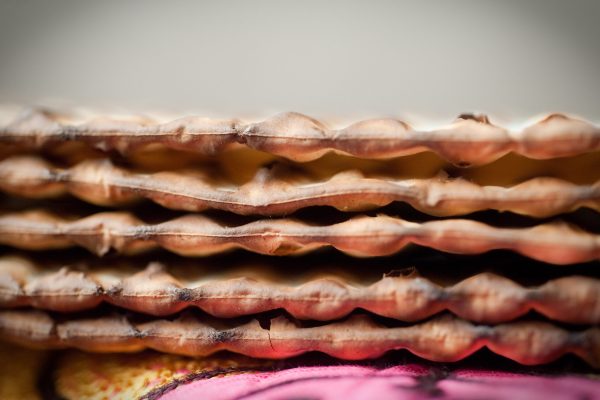The wedding feast, however modest or elaborate, is a requirement of Jewish law. It is a mitzvah par excellence to make the bride and groom rejoice at their wedding. Food, wine, dancing, music, funny jokes, costumes and entertainment for the wedding couple—all of this constitute fulfillment of the mitzvah. The wedding meal concludes with the recital of birkat ha-mazon (grace after meals) and a second recital of the seven blessings. (The nuptial blessings recited earlier under the wedding canopy.) The first six blessings are made over one cup of wine, the seventh over a second, and then the two are mixed together and given to the couple to drink.
It is traditional that for seven nights following the wedding (including the wedding night itself), friends and family gather, and the sheva brakhot are recited. Meals subsequent to the wedding meal are usually held at the homes of friends and family. The only conditions of sheva brakhot is that there be a minyan of ten or more and panim chadashot (a new face)—someone who was not at the wedding ceremony—at the sheva brakhot meal.
Sheva brakhot can be a way of extending the wedding festivities and including guests who could not attend the wedding. It can also be a way for the couple to settle into their new relationship in the supportive presence of community (sort of the opposite of a honeymoon). Couples who celebrate sheva brakhot defer their honeymoon until after the week of feasting is over. For some couples, sheva brakhot can be exhausting, with party after party to attend and little time alone. Such couples may elect to take a few nights off and only have a few sheva b’rakhot or to dispense with the ritual entirely.











